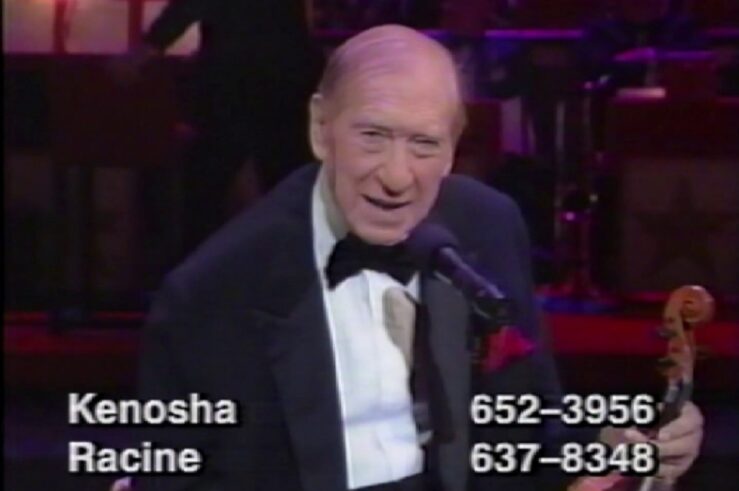Showing archive for: “Platforms”
Latin America Should Follow Its Own Path on Digital-Markets Competition
In order to promote competition in digital markets,[1] Latin American countries should not copy and paste “solutions” from other jurisdictions, but rather design their own set of policies. In short, Latin American countries—like my own, Peru—should not “put the cart before the horse” and regulate markets that are not yet mature. Digital or “tech” markets ... Latin America Should Follow Its Own Path on Digital-Markets Competition
Shining the Light of Economics on the Google Case
The U.S. Justice Department has presented its evidence in the antitrust case alleging that Google unlawfully maintained a monopoly over “general search services” by “lock[ing] up distribution channels” through “exclusionary agreements” with makers and marketers of devices. Google’s agreements with Apple, for example, have made its search engine the default in Apple’s Safari browser. The ... Shining the Light of Economics on the Google Case
The View From Brazil: A TOTM Q&A with Mariana Tavares de Araujo
How did you come to be interested in the regulation of digital markets? Prior to joining Levy & Salomão Advogados, I worked with the Brazilian government for nine years, four of which I served as head of the government agency in charge of antitrust enforcement and consumer protection policy. During this time, I was very ... The View From Brazil: A TOTM Q&A with Mariana Tavares de Araujo
What Does NetChoice v. Bonta Mean for KOSA and Other Attempts to Protect Children Online?
With yet another win for NetChoice in the U.S. District Court for the Northern District of California—this time a preliminary injunction granted against California’s Age Appropriate Design Code (AADC)—it is worth asking what this means for the federally proposed Kids Online Safety Act (KOSA) and other laws of similar import that have been considered in ... What Does NetChoice v. Bonta Mean for KOSA and Other Attempts to Protect Children Online?
An FTC Complaint Against Amazon Gets Personal
There is much in the Federal Trade Commission’s (FTC) record over the past two years that could be categorized as abnormal. There is, for instance, nothing “normal” about using the threat of excessive force to cower businesses into submission. Introducing sky high costs for the filing of mergers isn’t normal, as it will scare away ... An FTC Complaint Against Amazon Gets Personal
The Marketplace of Ideas: Government Failure Is Worse Than Market Failure When It Comes to Social-Media Misinformation
Today marks the release of a white paper I have been working on for a long time, titled “Knowledge and Decisions in the Information Age: The Law & Economics of Regulating Misinformation on Social-Media Platforms.” In it, I attempt to outline an Austrian law & economics theory of state action under the First Amendment, and ... The Marketplace of Ideas: Government Failure Is Worse Than Market Failure When It Comes to Social-Media Misinformation
Antitrust at the Agencies Roundup: Take My Default … Please! Edition
I can hardly believe it, but I’ve read that a famous old bit by Henny Youngman has been purged from Florida textbooks, apparently because it was deemed offensive to those who wrote, told, and laughed at the joke. I won’t tell it here, but you can look it up. And if you’re a reader of ... Antitrust at the Agencies Roundup: Take My Default … Please! Edition
The FTC Tacks Into the Gale, Battening No Hatches: Part 2
Part 1 of this piece can be found here. Emergence of the ‘Neo-Brandeisians’ Thus, matters unfolded until the curtain began to descend on the second Obama term in 2016. In the midst of presidential primary season, a targeted political challenge to the prevailing economic approach to antitrust first came to light. No one has yet ... The FTC Tacks Into the Gale, Battening No Hatches: Part 2
Right to Anonymous Speech, Part 3: Anonymous Speech and Age-Verification Laws
An issue that came up during a terrific panel that I participated in last Thursday—organized by the Federalist Society’s Regulatory Transparency Project—was whether age-verification laws for social-media use infringed on a First Amendment right of either adults or minors to receive speech anonymously. My co-panelist Clare Morell of the Ethics and Public Policy Center put ... Right to Anonymous Speech, Part 3: Anonymous Speech and Age-Verification Laws
Minor Matters in Cyberspace: Examining Internet Age-Verification Regulations
I participated yesterday in a webinar panel hosted by the Federalist Society’s Regulatory Transparency Project. The video was livestreamed at YouTube. Below, I offer my opening remarks, with some links. Thank you for having me. As mentioned, I’m a senior scholar in innovation policy at the International Center for Law & Economics (ICLE). This means ... Minor Matters in Cyberspace: Examining Internet Age-Verification Regulations
Right to Anonymous Speech, Part 2: A Law & Economics Approach
We at the International Center for Law & Economics (ICLE) have written extensively on the intersection of the First Amendment, the regulation of online platforms, and the immunity from liability for user-generated content granted to platforms under Section 230 of the Communications Decency Act of 1996. One of the proposals we put forward was that ... Right to Anonymous Speech, Part 2: A Law & Economics Approach
Right to Anonymous Speech, Part 1: An Introduction from First Principles
What is anonymity? Do we have a right to it? And against what other values should this right be balanced when it comes to government regulation? This blog post will be the first in a series that looks at what anonymity is, why it is important, and what tradeoffs should be considered when applying a ... Right to Anonymous Speech, Part 1: An Introduction from First Principles
















